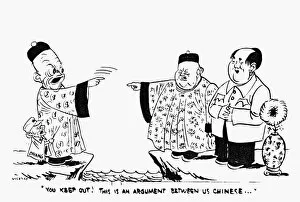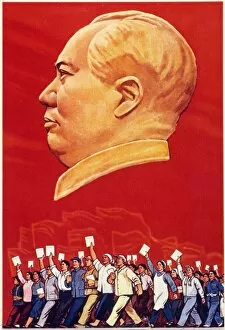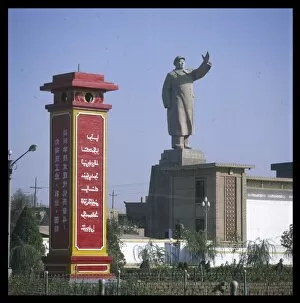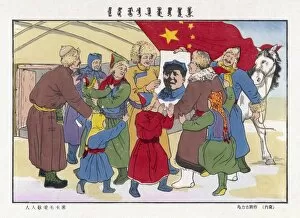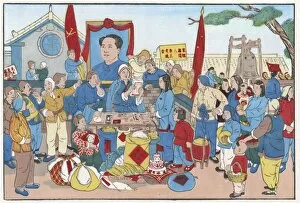Zedong Collection (page 2)
Zedong: The Iconic Leader of the Chinese Communist Revolution In the realm of Chinese Communist propaganda posters, one name stands out above all others - Zedong
All Professionally Made to Order for Quick Shipping
Zedong: The Iconic Leader of the Chinese Communist Revolution In the realm of Chinese Communist propaganda posters, one name stands out above all others - Zedong. Chairman Mao Tse-tung, as he is widely known, was a towering figure in 20th-century history and the founding father of the People's Republic of China. One such poster from 1973 captures Mao greeting the Red Guards in Tiananmen Square, Beijing. This powerful image symbolizes his unwavering support for the Great Proletarian Cultural Revolution, a movement aimed at purging capitalist elements from society. Another striking woodcut poster from 1976 depicts Mao's slogan "Revolutionary Committees are Good. " These committees were instrumental in maintaining social order during times of political upheaval and embodying Mao's vision for a classless society. Mao's influence extended far beyond China's borders. His famous Little Red Book became an essential guidebook for revolutionaries worldwide. It contained his revolutionary thoughts and served as a source of inspiration for those seeking to challenge established power structures. Notably, Mao also welcomed international leaders with open arms. He warmly greeted South Yemen leader and met with Harry Pollitt, leader of Britain's Communist Party. These encounters showcased his commitment to fostering global solidarity among communist movements. Even iconic figures like Che Guevara sought wisdom from Chairman Mao during their historic meeting. Their encounter exemplified how Zedong had become an emblematic figurehead not only within China but also on the world stage. However, it wasn't just foreign dignitaries who admired him; ordinary people revered him too. Countless images capture Mao engaging with visitors or leading rallies amidst adoring crowds—a testament to his enduring popularity among Chinese citizens. His relationship with Nikita Khrushchev further highlights his significance on an international scale. Despite ideological differences between China and Soviet Russia, their meetings demonstrated that even giants could find common ground in pursuit of their respective communist visions.

